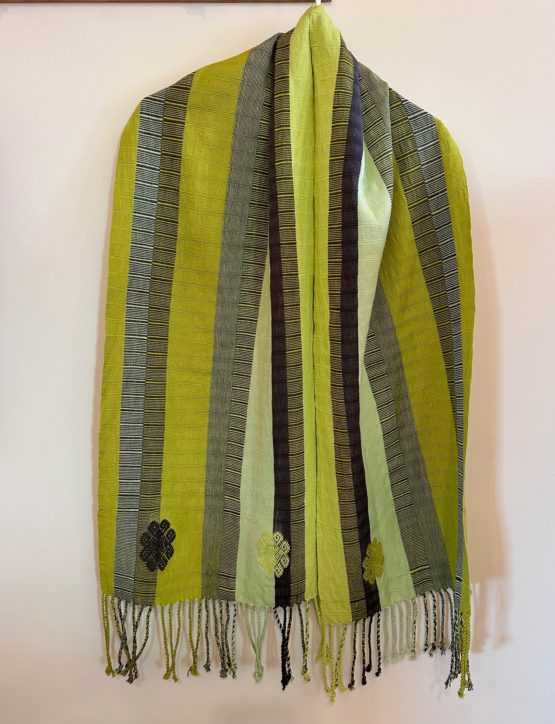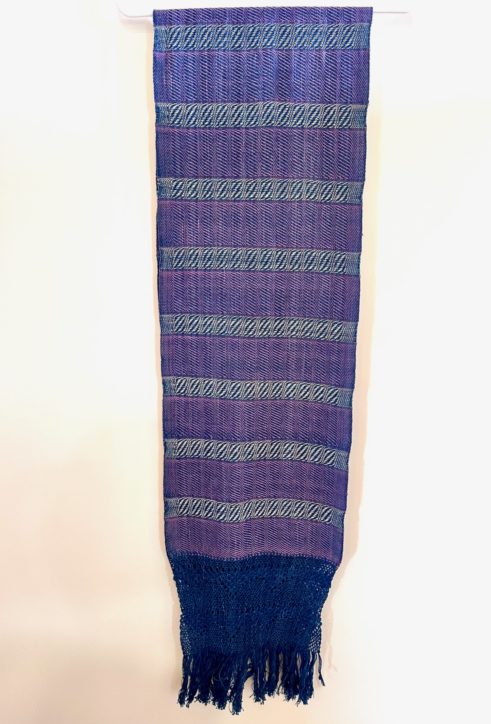On October 30, 2024, we immerse ourselves in the rich cultural and social history of Teotitlan del Valle. No where is Day of the Dead celebrated with more authenticity than in the villages. Our one-day tour starts at 9:00 a.m. We pick you up at a central location in the Historic District of Oaxaca city and return you there by 6:00 p.m. We will let you know the location two-weeks before the tour. Your guide is Eric Chavez Santiago with Norma Schafer.
Why you want to travel with us:
- We know the culture! We are locally owned and operated.
- Eric Chavez Santiago is Zapotec, tri-lingual, born and raised in Teotitlan del Valle.
- Norma Schafer has been living in Oaxaca for almost 20 years.
- We have deep connections with artists and artisans.
- 63% of our travelers repeat — high ratings, high satisfaction.
- Wide ranging expertise.
- We give you a deep immersion to best know Oaxaca and Mexico.
We welcome you into the Altar Room of each artisan we visit to pay respects to the family and their ancestors. We have arranged for permission for you to take photos and participate in some of the rituals, including tasting Pan de Muertos and Hot Chocolate made locally from toasted cacao beans. All along the way, you will learn more about how this tradition is celebrated, with its deep pre-Hispanic indigenous roots.



The artisans we visit in Teotitlan del Valle not only talk about and demonstrate their craft, they discuss their personal experiences and traditions growing up and honoring their ancestors during Day of the Dead. When you participate with us, you will go deep into a rich Zapotec history and culture that pre-dates the Spanish conquest of Oaxaca in 1522, and the settlement of Oaxaca as a colonial capitol.
While we spent most of the day in Teotitlan del Valle learning about the Day of the Dead traditions here, we start out in Santa Maria El Tule at the home studio of a flying shuttle loom weaver who uses naturally dyed threads to create clothing — blouses and shawls. He also has a selection of beautifully woven home goods — tablecloths, napkins, and dish towels. We learn that ancient traditions pre-date Catholicism, and those who don’t adhere to a religion still observe Day of the Dead.



Our itinerary includes stops to see:
- a traditional flying shuttle loom weaver who creates award winning home goods and clothing
- a famous rug weaving family that works only in the highest quality wool and natural dyes
- a chocolate maker who uses grandmothers’ recipes to make delicious eating + drinking chocolate
- an accomplished women’s cooperative that fashions leather trimmed handbags
- lunch prepared by a traditional chef who prepares exquisite food
In El Tule, Alfredo tells us that Day of the Dead is not a religious holiday but a cultural one, hearkening back to the pre-Hispanic ancestors. Building an altar is his way of honoring his grandmothers and grandfathers who taught him to weave. He works on several looms that he inherited from his grandfather that are more than ninety years old. They have been repaired repeatedly and the wood frames are pocked with insect holes that accumulated over the years. Nothing here is discarded and age in whatever form — human or inanimate — is revered.



We make three more stops during the day. First to a favorite rug weaving studio. Here we will feel the emotional connection with the altar, learning about the importance of celebrating in the home. We will be welcomed with the perfume of copal incense, candlelight, and marigold flowers — all important for guiding the spirits of deceased loved ones back home for this twenty-four hour period when they return from the underworld to visit us.



The difuntos enter this world through the sugar cane arches flanking the altar and this portal is necessary to ensure an easy passage. Almost everyone here will have their altars complete by November 1, just in time for the spirits to return at three o’clock in the afternoon. They will stay with their families until November 2, consuming the ceremonial foods from the altar. At three o’clock on November 2, the church bells will ring and announce the time for the difuntos to return to their resting places in the cemetery. We accompany them, leading the way with copal, to ease them back to the underworld, offering prayers for a smooth passage and a promise that we will see them next year.



The offerings on the altars in Teotitlan del Valle include chocolate, bread, and candles. Other foods can include those favored by the deceased: beer, mezcal, coffee, coca cola, tortillas, tamales stuffed with mole amarillo (a village tradition). There will always be peanuts and pecans, eaten here long before the Spanish arrived.
Our last stop before returning to the city will be to a women’s cooperative whose members who weave beautiful small tapestries colored with natural dyes that they make into totes and handbags, trimmed with leather straps. It takes about two weeks to make a bag and the craftsmanship is superb.



Lunch is a culinary exploration into the traditional foods of the season, including yellow mole tamales, mezcal, and fruit water prepared by a local traditional cook.
Registration and Cancellation. Tour cost is $155 per person. This includes transportation in a luxury van, bilingual guide services with translation, altar and studio visits, and lunch. Payment in full is required to reserve. In the event cancellation is necessary, we request a 10-day notice (by October 20) to receive a 50% refund. We accept payment with Zelle (no fees) or with a credit card (3.5% fee). Tell us when you are ready to register and we will send you a request for funds.
To reserve, please contact Norma Schafer by email.



Check out our Shop for all things hand-made in Oaxaca and Mexico!
Come with us to Chiapas, February 20-28, 2024







